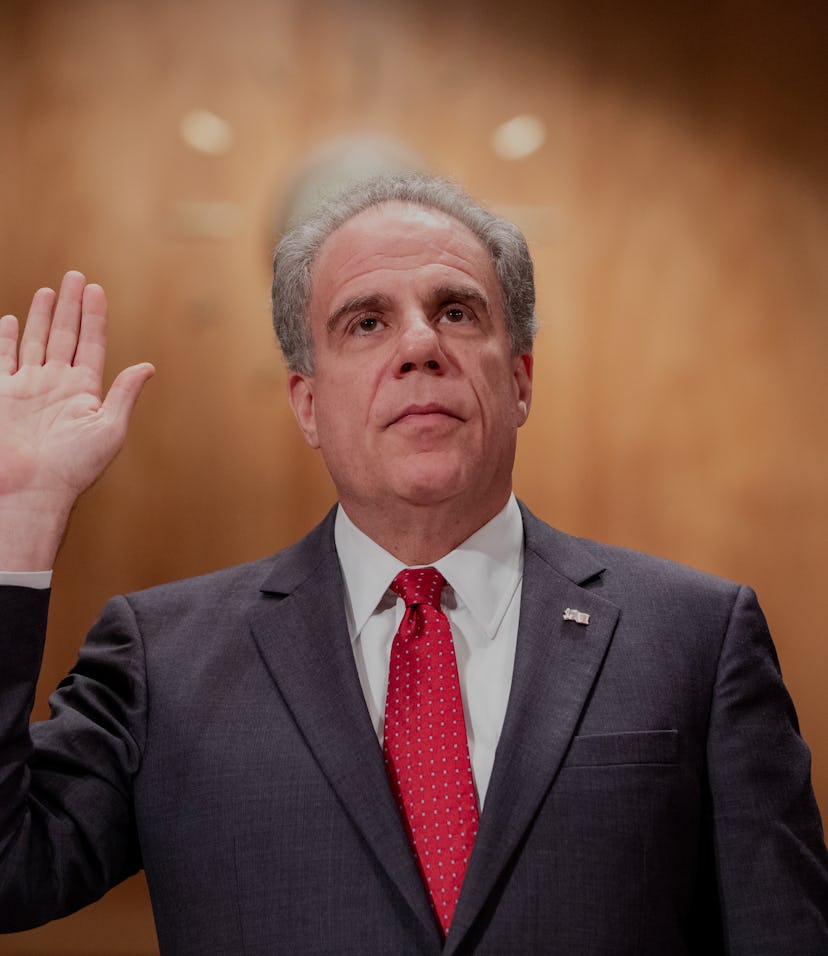State of surveillance
The FBI's surveillance system is, unsurprisingly, terribly flawed
A follow-up audit of the Foreign Intelligence Surveillance Act (FISA) applications depicts a sloppy, reckless, and error-riddled system.

In the last year, the Justice Department inspector general, Michael Horowitz, has highlighted what he considers a slew of problems with the way the FBI prepares wiretap applications. The Justice Department was initially focused on one particular case belonging to Donald Trump's former campaign adviser, Carter Page. Since then the focus has broadened. On Tuesday, The New York Times reported on a follow-up audit on the matter released by Horowitz's office. Reviewing Foreign Intelligence Surveillance Act wiretap applications in the Woods files, Horowitz and his team of investigators claimed that all 29 of the cases they reviewed had deeply concerning issues.
Gossamer faith in the system — The official follow-up audit reveals Horowitz's lack of faith in the current FBI request process. "We do not have confidence that the FBI has executed its Woods Procedures in compliance with FBI policy, or that the process is working as it was intended to help achieve the ‘scrupulously accurate’ standard for FISA applications," the document notes.
Botched files, slipshod management — The document points out that 25 of the 29 requests carried errors or "inadequately supported facts," while the remaining four requests couldn't be examined thoroughly as the FBI itself had no knowledge of their location. Of the 25 requests that could be probed, Horowitz noted that an average of 20 issues arose from each case, with one resulting in a staggering 65 red flags.
Many of the requests, the audit notes, failed to meet the agency's own prerequisites for concerning sources, documentation, and verification — an issue previously mentioned during the Page investigation. As The New York Times points out, lower level agents are known to cherry-pick evidence, resulting in wiretap requests sliding through that shouldn't.
We've been here before — Although the FBI responded with a renewed commitment to issue corrective measures and intensify training for its members, this is by no means the first time that the agency has faced scrutiny for mismanagement, been accused of allowing factually compromised applications, and had to answer questions around its credibility. Audits conducted in recent years have revealed that these flaws are frequent and systemic, rather than occasional missteps.
How this plays out in politics — Those aligned with the Trump administration will likely argue the FBI is singling out conservatives through its surveillance apparatus. But a cursory glance at the bureau's years-long conduct and management of wiretapping requests shows that it monitors practically everyone on the political spectrum. Not that Trump loyalists are inclined to let something petty like a fact stand in the way of their indignation and outrage.
The audit only reconfirms the need to place stringent and carefully enforced checks and balances against privacy violations on the bureau. Oregon Senator Ron Wyden stressed this point, The New York Times reported. "The inspector general’s findings of widespread abuses indicate that Carter Page was not singled out," Wyden stated. "Congress should write reforms into black-letter law to ensure that every American’s rights are protected, not just friends of the president."